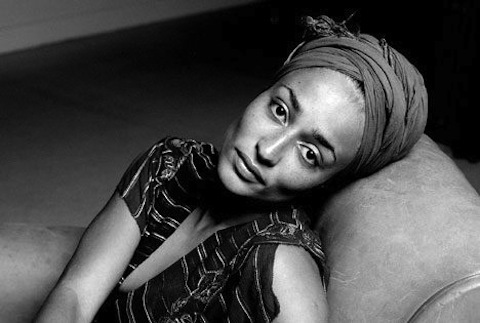Many, if not, most writers teach—whether literature, composition, or creative writing—and examining what those writers teach is an especially interesting exercise because it gives us insight not only into what they read, but also what they read closely and carefully, again and again, in order to inform their own work and demonstrate the craft as they know it to students. Let’s take two case studies: exemplars of contemporary literary fiction, both of whom teach at Columbia University. I’ll leave it to you to draw your own conclusions about what their syllabi show us about their process.
First up, we have Zadie Smith, author of White Teeth and, most recently, NW: A Novel. In 2009, Smith lent her literary sensibilities to the teaching of a weekly fiction seminar called “Sense and Sensibility,” for which we have the full booklist of 15 titles she assigned to students. See the list below and make of it what you will:
Brief Interviews with Hideous Men, David Foster Wallace
Catholics, Brian Moore
The Complete Stories, Franz Kafka
Crash, J.G. Ballard
An Experiment in Love, Hilary Mantel
Modern Criticism and Theory: A Reader, David Lodge
The Screwtape Letters, C.S. Lewis
My Loose Thread, Dennis Cooper
The Prime of Miss Jean Brodie, Muriel Spark
The Loser, Thomas Bernhard
The Book of Daniel, E.L. Doctorow
A Room with a View, E.M. Forster
Reader’s Block, David Markson
Pnin, Vladimir Nabokov
The Quiet American, Graham Greene
Smith’s list trends somewhat surprisingly white male. She includes not a few “writer’s writers”—Kafka, J.G. Ballard, and of course, Nabokov, who also turns up as a favorite for another Russian expat writer and author of Absurdistan, Gary Shteyngart. In a Barnes and Noble author profile, Shteyngart lists two of Nabokov’s books—Pnin and Lolita—among his ten all-time favorites. Also on his list are Saul Bellow’s Herzog and Philip Roth’s Portnoy’s Complaint. All three authors appear in a 2013 Columbia course Shteyngart teaches called “The Hysterical Male,” a class specifically designed, it seems, to examine the neurosis of the white (or Jewish) male writer. With characteristic dark humor, he describes his course thus:
The 20th Century has been a complete disaster and the 21st century will likely be even worse. In response to the hopelessness of the human condition in general, and the prospects for the North American and British male in particular, the contemporary male novelist has been howling angrily for quite some time. This course will examine some of the results, from Roth’s Portnoy and Bellow’s Herzog to Martin Amis’s John Self, taking side trips into the unreliable insanity of Nabokov’s Charles Kinbote, the muddled senility of Mordecai Richler’s Barney Panofsky and the somewhat quieter desperation of David Gates’s Jernigan. We will examine the strategies behind first-person hysteria and contrast with the alternate third- and first-person meshugas of Bruce Wagner’s I’ll Let You Go. What gives vitality to the male hysterical hero? How should humor be balanced with pathos? Why are so many protagonists (and authors) of Jewish or Anglo extraction? How have early male hysterics given rise to the “hysterical realism” as outlined by critic James Wood? Is the shouting, sweaty male the perfect representation of our disastrous times, or is a dose of sane introspection needed to make sense of the world around us? How does the change from early to late hysterical novels reflect our progress from an entirely male-dominated world to a mostly male-dominated one? Do we still need to be reading this stuff?
I would hazard to guess that Shteyngart’s answer to the last question is “yes.”
Related Content:
David Foster Wallace’s 1994 Syllabus: How to Teach Serious Literature with Lightweight Books
Donald Barthelme’s Syllabus Highlights 81 Books Essential for a Literary Education
The Book Trailer as Self-Parody: Stars Gary Shteyngart with James Franco Cameo
Josh Jones is a writer and musician based in Durham, NC. Follow him at @jdmagness



Leave a Reply